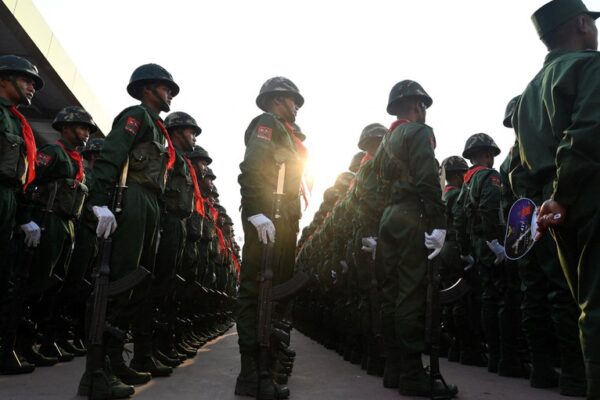Pakistani police crack down on Uyghurs at risk for deportation
Pakistani authorities began conducting unexpected house raids on the homes of Uyghurs living in Rawalpindi just before a government order to expel all illegal migrants who had not left the country by the start of November took effect, according to Uyghurs involved in the matter. Officials issued a warning in early October, stating that migrants without a legal residence permit in Pakistan had to leave by Nov. 1 or face deportation. The measure affects nearly 20 Uyghur families — or about 100 individuals — living in Rawalpindi, the fourth most populous city in Pakistan. Pakistani officials issued the expulsion order after dozens of people were killed in two suicide bombings in late September. Though they said that most such bombings this year were conducted by Afghan nationals, they decided to expel all migrants without a valid residence permit – including 1.73 million Afghan refugees – if they didn’t leave on their own. Most of the affected Uyghurs are descendants of individuals who migrated decades ago from Xinjiang to Afghanistan and later to Pakistan. They lack Afghan or Chinese passports and Pakistani residence permits. The Uyghurs, who have been living in a state of uncertainty in Pakistan for the past month, said authorities began sudden house raids at midnight on Oct. 31. “They are raiding homes at midnight or at 1 or 2 o’clock,” said a Uyghur man named Turghunjan who is married and has two daughters and a son. “The landlords are also telling us to leave, but we will have nowhere to sleep.” Landlords who rent homes to the Uyghurs reported some of them to the authorities, and on Nov. 1, a man named Amanullah was detained during a house search by police as part of the effort to investigate illegal migrants, the Uyghurs said. Police released Amanullah on bail five hours later. It remains unclear if authorities will deport the Uyghur families. Stopped by police Turghunjan, a relative of Amanullah, said he was abruptly stopped by police on his way home from work on the evening of Oct. 31, during which the officers checked his identity and warned him of a potential search the following day. “While I was on my way home, the police stopped me and asked me questions,” he said. “They slapped me on the face three or four times and said they would search me after Nov. 1.” “We are not Afghan, and if they deport us, where will we go?” he asked. RFA could not reach police in Rawalpindi for comment. The Uyghur families are concerned that their safety will be at risk under current Taliban control if Pakistani authorities deport them to Afghanistan. They also fear being forced back to China, where Uyghurs in the far-western Xinjiang region face repression and are subjected to severe rights abuses. “They are not leaving their homes, [and] the landlords are reporting them to the police,” said Omer Khan, founder of the Pakistan-based Omer Uyghur Trust, who has been assisting the families. Though police have threatened some Uyghurs over the past days, they have not yet arrested or deported anyone, he said. The Uyghurs sought help from the U.N. refugee agency’s office in Pakistan for years without success. But this October, the agency collected their names, addresses, and details about their families, following an early October report about their plight by Radio Free Asia. At the time, the agency also said it was investigating the situation of the Uyghur families facing deportation if they failed to comply with the government order expelling all illegal migrants. Khan said he received a reassuring call from a representative of the U.N. refugee agency, officially the U.N. High Commissioner for Refugees, or UNHCR, on Nov. 2 while the Uyghurs faced harassment by police. “We didn’t ask them to come and take us,” he said. “We just need a response and decision from the U.N. about refugee status.” Neither the U.N.’s refugee agency in Geneva, Switzerland, nor its office in Pakistan responded to inquiries from RFA. Translated by RFA Uyghur. Edited by Roseanne Gerin and Malcolm Foster.


